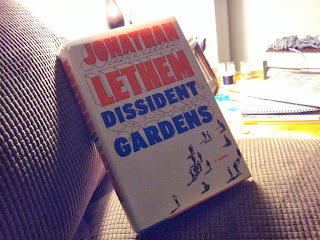Author: David Vann
Published: 2013 (HaperCollins)
Pages: 239
Holy shit, you guys. I was not prepared.
Of course I read the summary and of course it sounded intriguing so that's why I bought it but - wow. This kid is a psychopath.
Let me back up: on a hunting trip with his dad, grandpa, and family friend, they see a poacher on their land and one of them points a gun at him and the kid pulls the trigger and shoots the poacher. Blows away pretty much all of his back.
And then everybody goes crazy in their own ways, the friend's "We gotta report this" and the dad's "Oh my god you ruined our lives" being the most understandable. The grandpa wants to kill the kid, which doesn't end up amounting to much except excuses for the author to go on about the Biblical tradition/instinct of family violence. Not even allusions but straight up flat out references that don't do any more connecting to this situation so you're kind of left just hanging out going, "Yep. Cain and Abel, man..."
And although the book's written in first person from the kid's point of voice, he doesn't actually talk or think or feel much of anything. Just a lot of description. In really annoying, disconnected sentence fragments. There are teases of him alluding to the fact that he's narrating this during the modern day, years after the actual event as a grownup, but again, nothing actually comes of that.
I dunno, guys. What's there is beautifully written, but there's not really much there. I don't think I'll keep this one.





